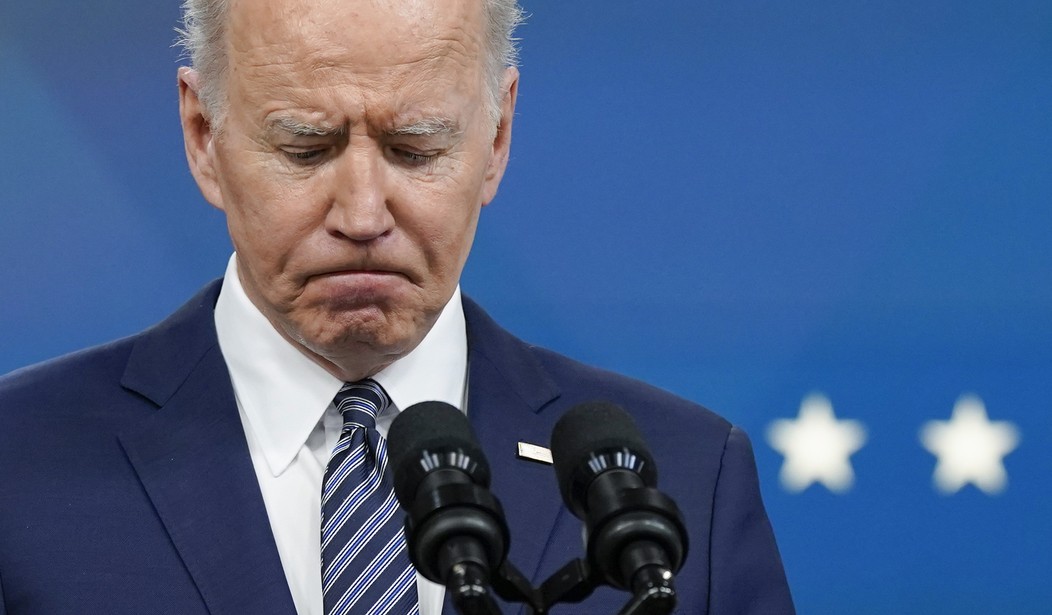Media reports on President Biden’s proposed budget have often credulously framed the plan as significantly reducing the deficit. But as welcome as it would be to see our elected officials finally taking the ever-expanding national debt seriously, Biden’s budget is a far cry from fiscal responsibility. Claims of “deficit reduction” in President Biden’s budget are little more than clever wordsmithing: in large part due to President Biden’s policies, there’s more deficit to reduce than ever before.
Since 2020, the federal government has made pre-pandemic trillion-dollar deficits look thrifty. In both 2020 and 2021, Congress went $3 trillion over budget, tripling the projected deficit for each year before the pandemic happened.
Some of that was necessary to respond to the unique economic challenges Americans faced as a result of the pandemic, but just as much happened because Congress got a taste for truly spending what it wanted to and didn’t want to give it up. Take the $1.9 trillion stimulus package and the $1.2 trillion infrastructure bill passed last year, the latter coming as the country was already dealing with the inflationary consequences of unrestricted spending.
It’s hard to overstate just how enormous spending levels have been during the pandemic, even relative to the country’s usual profligate spending habits. In January of 2020, the Congressional Budget Office (CBO), the official budget scorekeeper, estimated that the federal government would spend $4.6 trillion and $4.8 trillion in FYs 2020 and 2021, respectively.
By July of 2021, even before Congress passed the infrastructure bill the CBO estimated that the federal government would spend $6.6 trillion in 2020 and $6.8 trillion in 2021. Revenues stayed largely unchanged, resulting in the aforementioned tripling of deficits.
Biden’s budget should receive no credit for bringing spending down from these unprecedented levels. It’s assumed that emergency spending slows down once the emergency abates. People don’t pat themselves on the back for cutting back spending the month after having to shell out thousands of dollars for an unexpected car repair.
Recommended
It’s not even the case that Biden’s budget brings spending back to pre-pandemic levels. The January 2020 CBO estimate for FY 2023 spending was $5.3 trillion, while Biden would spend $5.8 trillion. Proposed spending reductions in his budget are limited to miniscule reforms and budget gimmicks.
And while responses to the pandemic blew up the debt, that should only serve as a reminder of why fiscal responsibility in “normal” years is so important. It’s naive to imagine that we will never face situations that require emergency spending again once we are fully past this crisis. If the federal government can’t spend within its means under normal circumstances, there’s nothing approaching a rainy-day fund for when crises happen.
While it’s difficult to even comprehend trillions of dollars in annual deficits, massive deficits have a real cost. In 2020 alone, just paying interest on the debt cost taxpayers $345 billion — and that’s at a time of low interest rates.
Three decades from now, the CBO projects that the cost of paying interest on the debt will be far greater than that of Social Security, and nearly match the cost of Medicare and Medicaid combined. Tax Day is painful enough when your taxes go towards defense and social programs, but imagine when they go to pay the government’s creditors because Congress couldn’t cut itself off the credit card.
Politicians like President Biden would tell you that reining in spending is impossible without hurting people. But if Congress managed even to limit its yearly spending growth to 1.8 percent per year, the deficit would disappear within a decade.
If Biden was serious about “deficit reduction,” he would come up with a plan to eliminate the deficit, not return it to pre-pandemic levels. As it stands, Biden’s budget would only continue the Washington trend of leaving it to future generations to pay for our failures.
Andrew Wilford is a policy analyst with the National Taxpayers Union Foundation, a nonprofit dedicated to tax policy research and education at all levels of government.























Join the conversation as a VIP Member